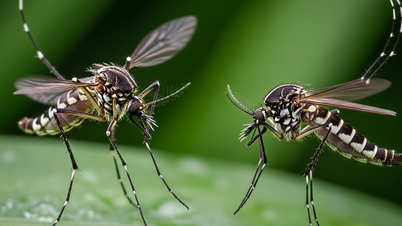So far, health experts say new Covid-19 variants can spread faster and escape the immune system more easily, according to the Times Of India .
However, a recent study has shed light on something more serious.

New Covid-19 variant can infect cells in the lower lung and cause severe illness
One of the new Covid-19 variants that is now dominant in some countries can infect deep in the lungs and is able to bind to host cell membranes more effectively, two characteristics that are associated with severe disease symptoms, according to research published in the scientific journal Cell.
Which Covid-19 variant is it?
The researchers studied the Pirola variant, also known as BA.2.86. This is the ancestor of the JN.1 variant, which is now spreading rapidly in many countries, and has about 60 more spike protein mutations than the original coronavirus. It also has 30 more mutations than the BA.2 variant and the XBB.1.5 variant.
The Pirola or BA.2.86 variant can infect cells deep in the lungs, according to Times Of India.

In the US, JN.1 accounts for 62% of recent Covid-19 infections.
BA.2.86 appears to have increased the ability to infect lung epithelial cells more than other Omicron variants, so that's a bit worrying, said lead study author Shan Lu Liu, PhD, of the Department of Infection and Immunity at the University of Florida School of Medicine.
The World Health Organization (WHO) has classified BA.2.86 and its subtypes as “variants of concern.” In the US, JN.1 accounts for 62% of recent Covid-19 cases.
Monitoring for variants is important
We know that coronaviruses are prone to viral reassortment, which leads to new variants with a huge number of mutations that can increase immune evasion and disease severity, which is why monitoring variants remains so important, said Professor Liu.
Source link



![[Photo] Prime Minister Pham Minh Chinh chairs a meeting of the Government Standing Committee on overcoming the consequences of natural disasters after storm No. 11](https://vphoto.vietnam.vn/thumb/1200x675/vietnam/resource/IMAGE/2025/10/09/1759997894015_dsc-0591-jpg.webp)


![[Photo] Prime Minister Pham Minh Chinh chairs the Conference to deploy the National Target Program on Drug Prevention and Control until 2030](https://vphoto.vietnam.vn/thumb/1200x675/vietnam/resource/IMAGE/2025/10/09/1759990393779_dsc-0495-jpg.webp)

























































































Comment (0)